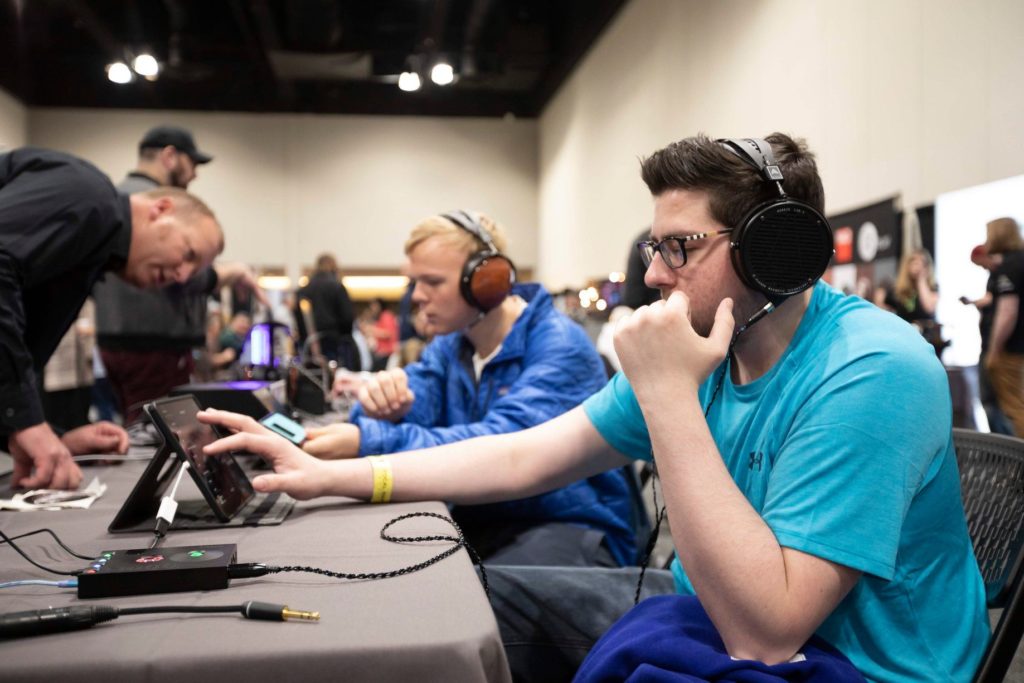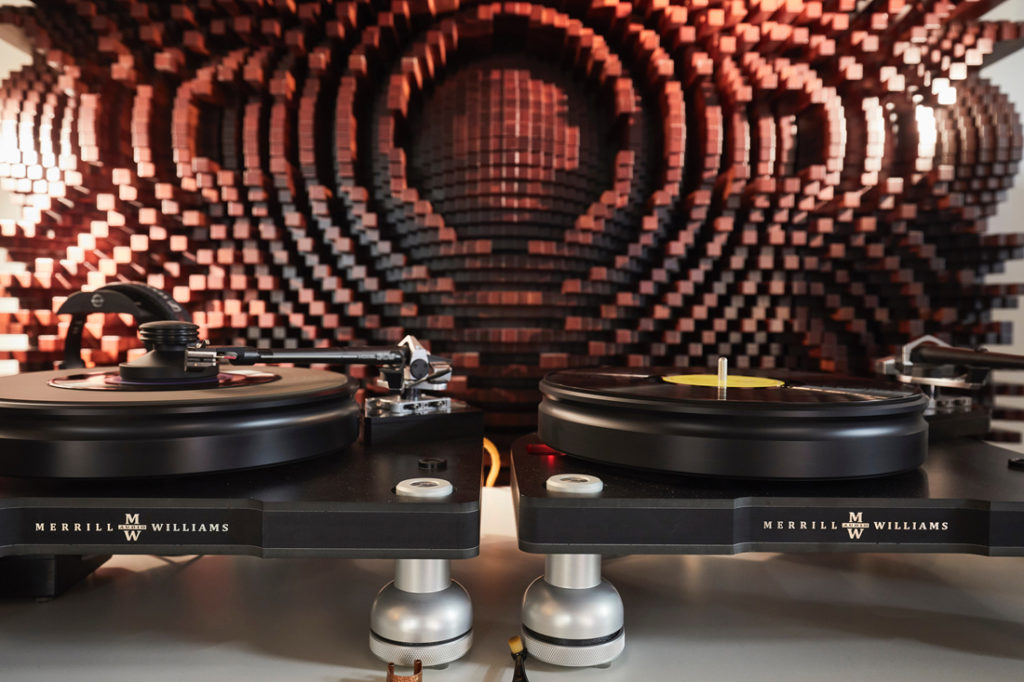In This GUEST POST, Bill Leebens Takes You on a Journey from ‘Me’ to ‘We’ & Proposes a New Industry Association

A few months ago, I unexpectedly became unemployed. There had been occasions in my career when it was clear that I needed to get the hell out of Dodge —but this wasn’t one of them.
A new job would not appear overnight; that was obvious. I was up to my ears in fearful self-absorption.
Then things changed…and the world was in upheaval.
This changed everything…
I still worried about paying bills and getting work, but those worries seemed trivial – petty even – in comparison to almost everything else out there. Fears about my family’s safety and health, initially debilitating, diminished once rigorous routines were put into place.
My focus shifted from within to without, from my mildly scary but relatively comfortable existence to those who dedicated themselves to caring for others. There were stories of stupidity and malfeasance, but by God, there was a core of dedicated folk determined to work together and make things better. No matter what.
And then it occurred to me: we could do the same thing.
We Need to Work Together
“We,” in this case, meant my colleagues in high-end audio and consumer electronics. These are fields filled with wildly-creative individuals, with the emphasis on “individual.” They often don’t play well with others, and the old joke is that it’s impossible to get them to agree upon a place for lunch, much less upon anything substantive.
Herding cats? Cats are, well, pussycats by comparison.
There will be major challenges ahead, likely for years to come. It would be better to face them together, rather than individually.
Bill Leebens
And yet….
I couldn’t help but think that a worldwide pandemic might cause even these hardheaded, intractable souls to see how dependent we all are upon one another. To see how much we need to work together, and how much we might benefit by doing so.
Leap of Faith: Believe that Cooperation is Possible
The hurdle here is in simply believing that cooperation is possible. The rest? Hell, these are people who are used to transforming dreams to reality, and taking an unknown fledgling technology and turning it into something found in every household. They basically live by the old Seabees slogan: “The difficult we do now. The impossible takes a little longer.”
Assume for a moment that we actually can work together. Then what? So what?
Imagine the Possibilities
So, plenty. How about:
Collective marketing – People can’t buy something if they don’t know it exists, and I can’t count the number of times I’ve introduced high-quality audio to people whose response was, “I never knew music could sound this good, I didn’t even know products like this existed.”
Granted, hi-fi products aren’t a (legalese alert!!) fungible commodity like milk, but promotional campaigns wouldn’t even have to feature specific products to convey the message.

And what about:
Collective oversight/legal representation – for example, to review show contracts, potentially avoiding some of the sad messes we’ve seen recently. Or – why stop there? Why not back and produce our own shows?
Collective buying groups – that would allow participants to receive better pricing by buying in large lots? How many electronic manufacturers use the same resistors, capacitors, DAC chips, USB interfaces, terminals, and so on? What if rather than a small manufacturer buying in lots of dozens or a few hundred, a collective bought pieces by the thousands? The same could be applied to off-the-shelf speaker drivers, and many other elements.
Collective online marketplaces – that would offer an online sales outlet for small companies that can’t handle the bureaucracy of, and rates charged by, Amazon.
Collective financing, or credit unions – I’ve known many small companies whose growth has been constrained by banks and other lenders trapped in 1960s standards, unable to grasp the fact that modern manufacturers who follow JIT philosophies rarely have inventory that can be used to collateralize loans? Similarly, many companies have boards, transformers, and casework done by outside vendors, and so don’t have heavy machinery which could also be used as collateral?
Jeff Haagenstad, CEO of digital audio company Exogal, recently said, “It’s not just that you can’t get anything made in America any more; even if you can, you can’t get it financed by banks who are focused on hard assets, inventory, and SBA 5:1 ratios.”
Why stop with lending to underwrite production runs? What about co-op ventures to build some of those tricky parts that have had to be purchased from offshore makers?
Even in a Pandemic, Some Have Thrived
Once you start working as a group, opportunities abound, whether it’s data collection/analysis/forecasting (my personal obsession), enabling companies to better prepare for market trends; or purchasing insurance, health/life/disability/business interruption; or even group “ins” on everything from cars to mortgage rates to Costco memberships.
What we’ve seen during the pandemic is that manufacturers and dealers with strong customer bases and effective online outreach have done better than expected. Some have even thrived: in April, Kevin Deal’s Upscale Audio, in LA County had the best month in the company’s 26-year history – with their showrooms closed. Orders were by phone or online, and products were all shipped, with the exception of set-up turntables sold to locals. Those could be picked up under carefully-controlled conditions, with virtually no close contact.

What the ‘New Normal’ Will Be
It remains to be seen how things will change as we emerge from the pandemic. There’s no telling how long it will take, or how customers will want to do business after months of isolation.
“Normal” as we knew it may be gone for good. I have no idea what the new normal will be, but I’d be willing to bet that we’ll see many more manufacturers going to online sales as an additional sales channel, if not their only sales channel.
Change can be daunting, but getting started is often the hardest part. Once there is movement, momentum, support will appear, and likely from unexpected quarters. For example: Keith Pray, the General Manager of AVTech Media Americas, publishers of Stereophile and Sound & Vision magazines and five audio websites, said, “We’d love to get behind an industry organization. We’d do everything we could to support it.”¹
Facing Challenges Together Will Require ‘A Slow Turning’
There will be major challenges ahead, likely for years to come. It would be better to face them together, rather than individually. That will require a measured, cumulative change in outlook—like the John Hiatt song says, a slow turning, from the inside out.
It can be done. More importantly, it should be done, and I’m sure y’all have more and better ideas than the few that I’ve mentioned.
Let’s hear them. Share your ideas below in the Comment box.

Bill Leebens has been a published writer since he was 15, and has worked in audio since he was 16, several centuries ago. He edited Copper magazine while at PS Audio, and has also worked in automobile racing, medical imaging, and a number of even less-plausible jobs, including being an IRS tax-examiner. He lives in Colorado with two impatient dogs and several very patient humans.
Bill can be reached at: bill@leebensllc.com
CORRECTIONS
¹ – June 3 – This entire paragraph was added after the original posting. According to the author, it was inadvertently dropped from an earlier draft.




Admirable thoughts. However I always assumed genuine high-end audio involved auditioning the product at a dealer’s reference level listening room, hopefully then at home under dealer guidance, then if purchased, correct installation int the home by the dealer, perhaps a follow-up visit later. Internet sales, curbside pick-ups seem to result from searching for the best price online and more appropriate to mid-fi sales (including high priced products that cannot offer true high-end performance) yes?
That’s not necessarily the case. Online sales of high-end products direct from manufacturers has become increasingly common over the past few years. Most have strong customer support to advise customers and aid with set-up and fine-tuning. And of course, increasing numbers of dealers are allowed to sell online, as well.
It sounds like a meaningless koan, but people want to buy the way they want to buy. For an ever-increasing number of folks, that way is online. Expecting everyone to buy the way they did in the past simply means that sales will be lost, and ultimately, companies will disappear.
“Adapt or die” doesn’t just apply to dinosaurs.
So what sort of support will a manufacturer of the type you refer to provide a customer who has purchased a $20k plus component sight unseen and unheard and wants to plonk it into their system? For example, a precision turntable/tonearm/cartridge setup requires jigs tools, and test gear most audiophiles do not own. Or the care a top digital front end requires so performance is not compromised by all noise sources that plague digital? And so forth. Maybe the high-end audio grail is not for the industry as a whole but just for the dedicated few who are not aspiring to be huge players?
Turntables are routinely shipped with cartridges installed and arms set up.
The Grail, as you put it, has historically been pursued by a small but avid percentage of the market.The makers and sellers of high-performance audio products have adapted to the changing market that has been permanently altered by the likes of Apple and Amazon.
As Director of Marketing at Audiogon a decade ago, a major challenge was convincing manufacturers that an internet presence was even necessary—today, none of them would doubt it. Similarly, online sales of specialty audio products have become more common.
There will always be a place for quality brick and mortar dealers, but there have always been alternate sales channels for those who live in areas unserved by dealers, or who seek products unavailable locally. If you look at old radio and hi-fi magazines, they were filled with ads for mail-order dealers and wholesalers. Some of those companies sold very high-end products indeed, including McIntosh, Marantz, Altec, AR, and many others.
Again: no one sales channel or method is universally applicable, or ideal. If manufacturers like PS Audio and dealers like Upscale Audio and Music Direct are able to provide excellent service to customers by phone or online, why shouldn’t they? And if customers are comfortably buying from them, why shouldn’t they?
Nobody saying they shouldn’t. I see where we diverge. The manufacturers you mention (sorry, wasn’t aware MusicDirect was a manufacturer these days) are very good but not at the top of the class which I feel they also would agree to. But as long as they help people enjoy the music they love, and more people than the esoterica-minded, s’all good yes?
It is indeed all good. I think there are opportunities available in all sales channels, not just online. I’m afraid I may have banged that drum a bit too loudly. ;->
I mentioned Music Direct as a retailer that has been very successful with an online presence, as is Upscale—but both do major business in their showrooms, as well. One channel can support the other.
I think any form of organization will work only if it’s joined by, and supported by, folks from every area of the business: manufacturers, B&M dealers, web-only resellers, folks that only sell at shows—everybody.
We’re all in this together, and it’s vital that we all work together, and grow together.
Thanks for your input!